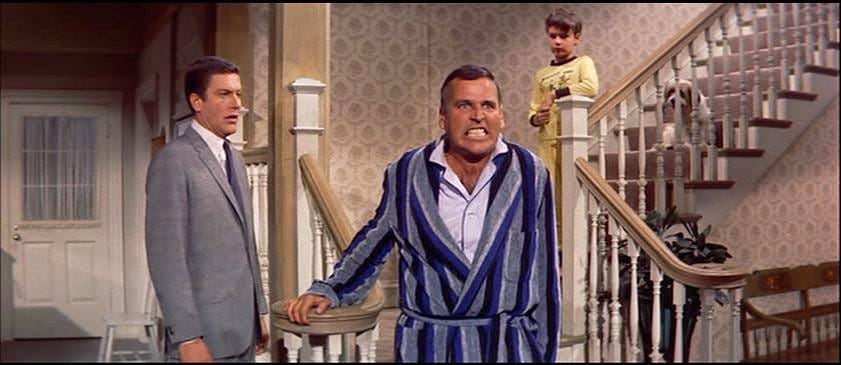Chances are, if you’re not a kid yourself, you remember that age-old refrain from the movie Bye Bye Birdie. Comedian Paul Lynde sings the lament that parents from every generation have expressed during their child-rearing days, yours truly included. If you’ve never watched it, this 1963 film is a parody on rock and roll star Elvis Presley going into the army, which shocked the country in 1958. Stream the movie, starring Dick Van Dyke and a smashing Ann-Margaret. It’s fun.

So…what is the matter with kids? A fair question. But I think we might need to dial it back one step and ask, what’s wrong with the world—their world—today?
For the record, I’m not a fatalist. Each generation seems to find its way through the fog. I mean, we Boomers made it through assassinations, a cultural revolution, an unpopular war, and the threat of nuclear annihilation—our very existence hanging in the balance. Right?
Yet, I think we can all agree it’s tougher to be a kid in 2023. Growing up just seems way more complicated. But how so?
Karen and I attended a talk given by Chap Clark, presented by Young Life in our community. Chap is a global speaker, a renowned expert in adolescent development, culture, parenting, and education. He talked about “cultural pivots,” Gen Z, and the three culprits that are driving our kids into deeper isolation—the Internet, social media, and cellphones.
From this Baby Boomer’s limited perspective, I admit being perplexed about the “Gens” that came after the Boomers. I would often ask, why are they finding it so difficult to launch? After all, when I turned 20, I left home and never looked back.
I know the obvious reasons…like the high cost of rent and food and gas. But Chap, and the panel of five high school-age students that he interviewed, opened my eyes to some of the deeper challenges.
For one, Gen Z kids, like plenty of us adults, are living virtual lives. Take a gander. Everyone’s distracted, hiding behind an electronic screen.
Kids nowadays live through avatars (which clicked in my mind, having seen the movie, Avatar: The Way of the Water). Moving from self to self with remarkable speed, each avatar fully them, but not completely them. In drama, English class, sports—you name it—they create different narratives, always shifting between multiple selves as they go through each setting. How exhausting!
Me, back then? It was just Mike. What you saw was what you got.
How do they survive and develop a core sense of who they are? According to the panel, Gen Z kids are exhausted from having to keep their guard up. Trust and intimacy are elusive, almost impossible.
They are “mosaic thinkers and reflectors,” Chap pointed out. They react to the world according to each avatar, so they suffer from a lack of depth as they attempt to integrate their avatars. Here’s the irony…while social media has increased connectivity, these kids have trouble connecting. They have difficulty communicating well; their relationships are transactional.
Dr. Kara Powell, Executive Director of Fuller Youth Institute, says this: “In our research, the most consistent way kids describe themselves is, ‘I’m not enough.’”
A new Gallup report indicates that less than half of Gen Z Americans describe themselves as thriving. Just 15 percent (aged 18-26) say their mental health is excellent. The stats are discouraging.
Social media has negatively impacted their self-esteem. Cyberbullying. Doom and gloom about climate change. Social issues like political unrest and discrimination. Depression. Guns in schools. And more. All combining to heighten anxiety in our kids.
Shouldn’t they be singing, What’s the matter with adults today? What kind of a world are they inheriting?
The news is not all bad. Gen Z kids are more racially and ethnically diverse than previous generations, and they’re the most well-educated generation yet. The kids on Chap’s panel were splendid examples of this. Smart as whips. I think they’ll be fine. And there’s a ray of light from the Gallup poll…more than three-quarters of Gen Zers agree they have a hopeful future ahead of them.
Teachers and parents and grandparents are on the front lines, tasked with helping to guide these soon-to-be adults in their journey toward that future.
A tough job. I pray they pivot well.

Leave A Comment